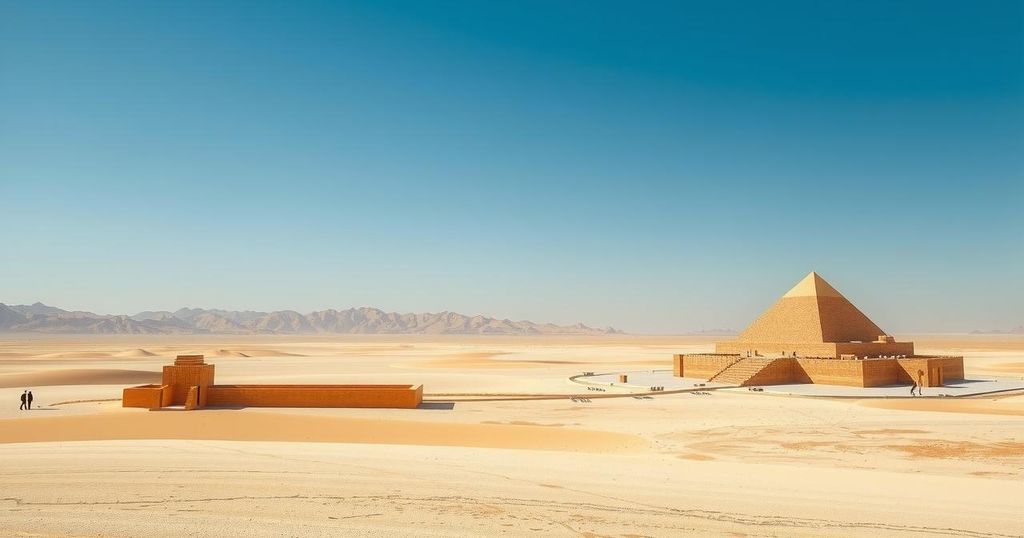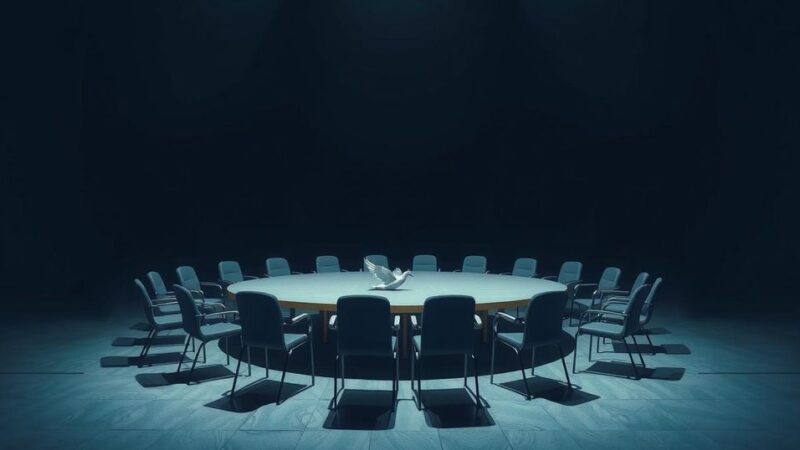A report claims Iran is intensifying its control over the Houthi group in Yemen, with senior military officials involved in their decision-making. Supreme Leader Khamenei oversees all related activities. The rise in Houthi attacks correlates with regional tensions, prompting President Trump to warn Iran of repercussions and to take decisive military action.
Recent reports indicate that Iran is intensifying its influence over the Houthi group in Yemen amid escalating tensions in the Middle East. Sources from the People’s Mojahedin Organization of Iran revealed that senior Iranian military officials, including members of the Islamic Revolutionary Guard Corps (IRGC), are involved in the decision-making processes of the Houthis. Supreme Leader Ayatollah Ali Khamenei is reportedly overseeing all political and military strategies related to the Houthis directly.
The compilation from the National Council of Resistance of Iran (NCRI) reveals that Iranian commanders have reinforced the significance of Houthi operations, actively coordinating arms shipments to bolster their capabilities. This strategic partnership aligns with Iran’s efforts to counter its waning influence amid challenges from adversaries like Israel in Gaza and Hezbollah in Lebanon.
Houthi forces have escalated their attacks, reportedly conducting over 100 assaults on commercial vessels since the onset of the Hamas attack on Israel on October 7, 2023. The recent exchanges of fire between Houthis and U.S. forces reflect an increase in hostilities, with Tehran promising continued support for the Houthis in light of these developments.
Trump’s administration has responded vehemently, with President Trump promising robust military actions until Houthi offenses cease, holding Iran accountable for supporting these attacks. Key figures within the IRGC, such as Brigadier General Abdolreza Shahlai, have been identified as central to coordinating Houthi activities, hinting at deep-rooted connections to the former commander Qassem Soleimani, who was killed in a U.S. drone strike.
Furthermore, the Tehran embassy in Yemen is claimed to be controlled by the Quds Force, showcasing a significant Iranian military presence in foreign policy operations. While Iranian operatives are noted to work out of embassies, evidence of diplomatic personnel from Iran’s Foreign Ministry in Yemen remains unsubstantiated. Ali Safavi of the NCRI denounced the Iranian regime’s role in regional instability and advocated for decisive international action to support Iranian resistance efforts against the regime.
The Iranian government is reported to be bolstering the Houthi group in Yemen through significant military oversight, led by senior IRGC officials and directly influenced by Supreme Leader Khamenei. This involvement comes amid increased regional tensions and ongoing conflicts, with the Houthis escalating their attacks on commercial shipping. President Trump has articulated a firm stance against Iran’s support of terrorism, emphasizing accountability and robust military action against the Houthi attacks.
Original Source: www.foxnews.com






